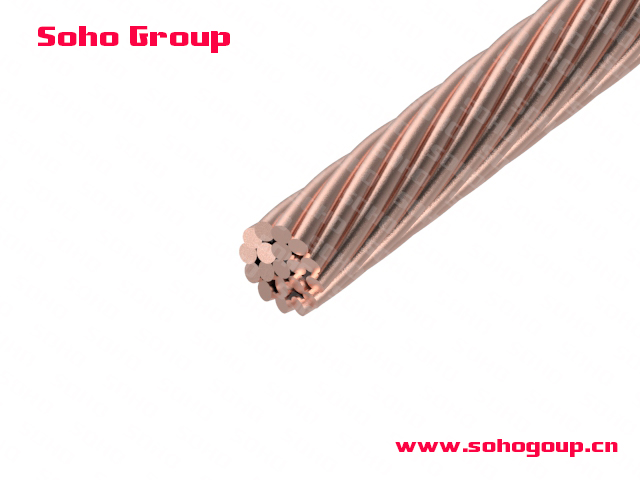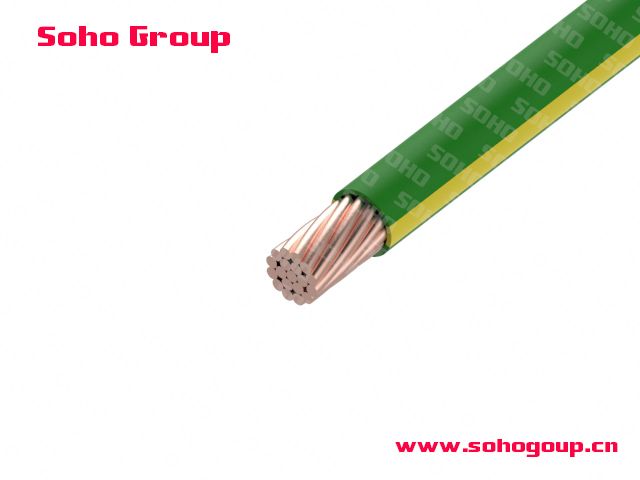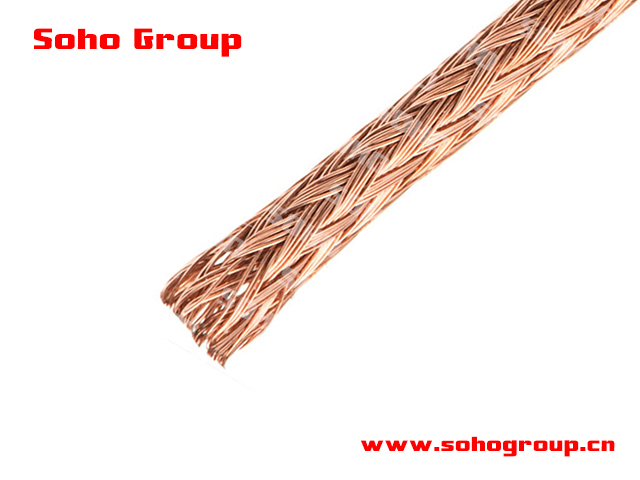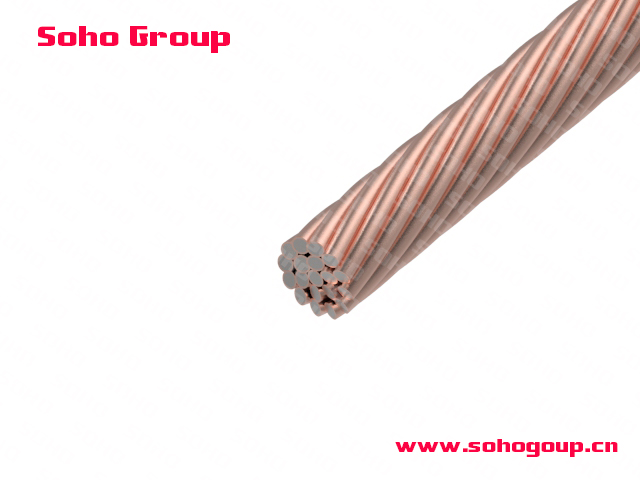
Categories
- TRANSMISSION-LINE
- Transmission-Line Fittings
- String Hardware
- Tower Attachment
- Parallel Groove Clamp
- Suspension Clamps
- Tension Clamps
- Compression Joint
- Repair Sleeve
- Preformed Armour Rod
- Stockbridge Damper
- Spacer & Spacer Damper
- Arcing Devices
- Counterweight & Jumper weight
- Danger plate & Number plate
- Corona & Grading Rings
- Transmission Conductor
- All aluminium stranded conductors(AAC)
- Aluminium conductors steel reinforced(ACSR)
- All aluminium alloy conductors(AAAC)
- Aluminium alloy conductors steel reinforced(AACSR)
- Arial Earth Wire & Shield Wire & Galvanized Steel Wire
- Porcelain Disc Suspension Insulators
- Composite Long Rod Insulators
- Toughened Glass Disc Insulator
- Tower of Transmission-Line
- SUBSTATION
- Connector and Fittings for Tubular Busbar
- Tubular Busbar Palm(Welding)
- Busbar A-Frame
- Connector for Tubular Busbar
- Tubular Busbar Support
- Tubular Busbar Earthing
- Tubular Busbar End Caps & Balls
- Substation Insulators
- Solid Porcelain Post Insulators(66kV -500kV)
- Solid Polymer Post Insulators(66kV-500kV)
- Hollow Core Insulators for Voltage Transformer
- Hollow Core Insulators for Capacitor
- Porcelain Disc Insualtors
- Polymer Long Rod Insulators
- Glass Disc Insulators
- Busbar
- Tubular Copper Busbar
- Rectangular Aluminum Busbar
- Rectangular Copper Busbar
- Tubular Aluminum Busbar
- Terminations & Connections for Conductor
- Aluminium Flexible Connector
- Copper Flexible Connector(Flat Braid)
- Compression Run Compression T Clamp(Closed)
- Compression Run Compression T Clamp(Open)
- Compression Run Palm Tap(Closed)
- Compression Run Palm Tap(Open)
- Compression Terminal Clamp
- Twin Conductor Compression Terminal Clamp
- Straight Bolted Type Terminal Clamp
- 90° Bolted Type Terminal Clamp
- Straight Twin Conductor Bolted Type Terminal Clamp
- 90° Twin Conductor Bolted Type Terminal Clamp
- Twin Conductor Bolted Type Tee Clamp
- Twin Conductor Run Palm Tap Lengthways Terminal Clamp
- Twin Conductor Run Palm Tap Transverse Terminal Clamp
- Parallel Groove Clamp
- Straight Connector Conductor to Conductor
- Tee Connector Conductor to Conductor
- Adaptor Plates
- Straight Type
- Right Angle Horizontal Type
- Right Angle Vertical Type
- Bi-Metallic Transition Plate
- Spacers
- Galvanized & Stainless Steel Bolts Assemblies
- Strings Fittings
- Connections for Flat Busbar
- Gantries & Structure
- Distribution Conductor
- All Aluminium Stranded Conductors(AAC)
- All Aluminium Alloy Conductors(AAAC)
- Substation Parallel Spacer Triple
- DISTRIBUTION
- Preformed Fittings
- Armor-Grip Suspension Clamp
- Trunnion Armor-Grip Clamp
- Aluminum Alloy Dead-Ends
- Copper Alloy Dead-End
- Thimbles
- Top Ties
- Armored Rod Twin Ties
- Side & Spool Ties
- Parrot Bill End Aluminum Alloy Armor Rods
- Copper Alloy Armor Rods
- Galvanized Steel Armor Rods
- Aluminium Alloy Line Splice
- Copper Alloy Line Splices
- Galvanized Steel Line Splices
- Aluminium Alloy Full Tension Line Splice
- T-Connector
- Helical Arcing Horn
- Galvanized Steel Guy-Grip
- Pole Top Make Off
- Insulated Stay
- Double-Wrap Guy-Grip
- Spiral Vibration Damper High Impact PVC
- Lashing Rods
- PVC Spacer
- The Pole Line Hardware
- Cross Arms
- Fastenes Bolts & Nuts
- Thimble Bolt Rod & Eye Bolt
- Eye Nuts
- Clevis
- Insulation Pin & Studs & Spindles
- Pole Hoop
- Cable & Conductor
- ACSR
- AAC
- ABC Cable
- SAC Cable
- Distribution Insulators
- Porcelain Disc Insualtors
- Polymer Long Rod Insulators
- Glass Disc Insulators
- Porcelain Line Post Insulators(Vertical)
- Porcelain Line Post Insulators(Horizontal)
- Polymer Line Post Insulators(Vertical)
- Polymer Line Post Insulators(Horizontal)
- Porcelain Pin Insulator(BS standard)
- Porcelain Pin Insulator(ANSI standard)
- Polymer Pin Insulators
- Shackle Insulators
- Spool Insulators
- Stay Insulators
- Wiring Insulators
- Telephone Lines Insulators
- Guy Strain Insulators
- Spindle for insulators
- BS Spindle for Pin Insulators
- ANSI Spindle for Pin Insulators
- Normal Short Spindle for Line Post Insulators
- Rachet short spindle for line post insulators
- Rachet long spindle for line post insulators
- Fuse/fuse cutout
- Porcelain Fuse Cutout
- Composite Fuse Cutout
- K Type Fuse Link
- HRC Fuse
- J Type Fuse
- Disconnect Switch
- Surge Arrestor 11-36kV(5kA-10kA)
- Over head Line fittings
- Suspension Clamp
- Bolt Type Tensioning Clamp
- U-Bolts
- Shackle
- Ball Eye
- Socket Tongue
- Arcing Horn
- UT Connectors
- ABC fittings
- Copper Strand Wire and Braid Connector
- Insulation Piercing Connector(IPC)
- Fire-Retardant IPC
- T connecting Terminal
- Insulation Piercing Grounding Connectors
- Fuse Bace
- Wedged Insulation Strain Clamp
- Suspension Clamp for ABC cable
- Suspension Clamp with Aluminum Bracket
- Anchoring Clamp
- Metal Anchor Clamp
- Four-Core Tension Clamp
- Pre-Insulated Sleeve
- Pre-Insulated Bimetal Sleave
- Expansion Screws
- JXL Series Clamp(Wedge Type)
- Parallel Groove Clamp with Insulator Cover
- SAC fittings
- Anti Sway Bracket for HDPE Spacer
- Tangent Support Bracket
- HT Tape for SAC Cable
- Cable lug
- Copper Cable Lugs-DT
- Double Holes Copper Cable lugs-DT2
- Aluminum Cable Lugs-DL
- Double holes Aluminum Cable lugs-DL2
- Bi-Metal Cable Lugs-DTL
- Copper Aluminum Cable lugs-CAL-A
- Copper Aluminum Cable lugs-CAL-B
- Copper Aluminum Cable lugs-European style
- Copper Aluminum Cable lugs-For cable tap box
- Copper Cable Lugs-OT
- P.G. Clamp & Connector
- Copper Parallel Groove Clamp-CAPG
- Aluminum Parallel Groove Clamp-CAPG
- Copper Parallel Groove Clamp
- Aluminum Parallel Groove Clamp-JB
- Copper-Aluminum Parallel Groove Clamp-CAPG(Hard-Solder)
- Copper-Aluminum Parallel Groove Clamp-CAPG( Friction Welding)
- C Clamp-Copper
- C Clamp-Aluminum
- Connecting Clamp-Aluminum
- Connecting Clamp-Copper
- Connecting Clamp (Hard-Solder)
- Connecting Clamp (Friction Welding)
- Connecting Tube-Aluminum
- Connecting Tube-Copper
- Connecting Tube-Bimetal
- Copper Plate
- Aluminum Plate
- Bimetal Plate
- Copper-Aluminum Parallel Groove Clamp( Friction Welding)
- Stay complete set
- Eye Bolts
- Turn Buckle
- Thimble
- Stay Grip
- Stay Wire
- Adjustable Stay Rod
- Non Adjustable Stay Rod
- Stay Anchor Plate/Earth Plate
- Other accessory
- Stainless Steel with Retaining Buckle
- Cable Nail
- Insulation Tape
- Stainless Steel Strip
- Aluminium Insulated Tie Wire
- COMMUNICATION
- Dead-End for OPGW
- Single Suspension Set
- Double Suspension Set
- Vibration Damper
- Armour Rods for Vibration Damper
- Ground Wire Set
- Joint Box
- Cable Tray
- Spiral Vibration Damper
- Corona Coil
- Downlead
- Downlead
- Fastened Fittings for Pole
- Fastened Fittings for Pole
- Fastened Fittings for Twoer
- Fastened Fittings for Twoer
- Fastened Fittings for Twoer
- GROUNDING SYSTEM
- Earth Rod
- Solid Stainless Steel Earth Rods
- Solid Copper Earth Rods
- Copper Clad Steel Earth Rods
- H.D.G Steel Earth Rods
- Earthing Wire
- Copper Wire
- PVC Covered Copper Wire
- Flexible Copper Braid
- Copper Clad Steel Wire
- Fittings for Earth Rod
- Fittings for Threaded Earth Rod
- Fittings for Unthreaded Earth Rods
- Earth Tube
- Conductor Tape
- Copper Tape
- Tinned Copper Tape
- PVC Insulated Copper Tape
- Stainless Steel Tape
- Aluminum Tape
- Bentonite
- Concrete Earth Pits
- Connectors
- C connectors
- Tinned Copper Flexible Connector
- Tape Clip
- Tape Clamp
- Rod to Tape Clamp
- Rod to Cable Clamp
- U-Bolt Rod Clamp
- Earth Points
- Earth Plates
- Solid Copper Earth Plates
- Lattice Copper Earth Plates
- Earth Bars & Disconnector Links
- Exothermic Welding
- Exothermic Powder
- Tooling Box
- Exothermic Welding Mould
- Marconite
- INSULATOR FITTINGS
- Clevis Fittings
- Y-Clevis Fittings
- Tongue Fittings
- Socket Fittings
- Ball Fittings
- Eye Fittings
- For Line Post Insulator
- For Cross-Arm Composite Insulator
- For Pin Insulator
- For Railway Insulator
- For Clamp (Vertical)
- For Clamp (Horizontal)
- Ball Pin & Socket Cap
- Tongue Pin & Clevis Cap
- For Others
- Top Head Fitting for Line Post Insulator
- Top Head Fitting Clevis for Line Post Insulator
- Top Head fitting Tongue for Line Post Insulator
- POWER CONSTRUCTION TOOLS
- Galvanized Steel Antitwist Wire Rope
- Hydraulic Press
- Hand Hydraulic Crimping Tools
- Cable Cutter
- tube Terminal Crimping Tools
- Mechanical Cable Cutter
- Wire Grip
- Hand Puller
- Snactch Block
- Stringing Block
- Cable Wellhead Pulley
- Cable Orifice Protection Pulleys
- High Voltage Operating Rod/Hot Stick
- H.V. Earthing Wire and Rod
- Security Clamp
- Wood Pole Climber
- Grounding Clamp
- Hot Line Cable Clamp
- Swivel Joints
- Elelctro Scope
- OEM/ODM
- SOLAR

Earthing Wire
Earthing Wire
-
 Copper Wire
Copper Wire● Conductivity: Copper is chosen as the material for earth copper wire due to its excellent electrical conductivity. This ensures efficient dissipation of electrical currents and fault currents into the ground.
● Safety: Grounding or earthing is essential for electrical safety. Earth copper wire helps prevent electric shocks, overvoltages, and damage to electrical equipment by providing a low-resistance path for fault currents to safely dissipate into the Earth.
● Applications: Earth copper wire is used in various electrical systems, including residential, commercial, industrial, and utility power distribution, as well as telecommunications and lightning protection systems.
● Grounding Electrodes: Earth copper wire is often connected to grounding electrodes, such as ground rods or plates, to establish a reliable electrical connection with the Earth. These electrodes enhance the effectiveness of grounding.
● Earthing Systems: It is an integral part of earthing or grounding systems, which are designed to ensure the safety of people and property, protect electrical equipment, and reduce the risk of electrical fires.
● Corrosion Resistance: Copper is resistant to corrosion, which is crucial for maintaining the long-term effectiveness of grounding systems.
● Standards: Earth copper wire and grounding systems must adhere to relevant electrical codes and standards, which vary by region and application. Common standards include ANSI/IEEE, IEC, and local electrical codes.
-
 PVC Covered Copper Wire
PVC Covered Copper Wire● Copper Conductor: The core of the wire is made of high-conductivity copper, which ensures efficient conduction of electrical currents to the ground.
● PVC Insulation: The copper conductor is insulated with a PVC (polyvinyl chloride) covering. PVC is a durable and weather-resistant material that provides protection against moisture and environmental factors.
● Color Coding: To distinguish it from other types of electrical wiring, PVC-covered copper wire for earthing is often color-coded with green or green/yellow stripes. This color scheme is internationally recognized for grounding and earthing applications.
● Sizes and Gauges: The wire comes in various sizes and gauges to accommodate different grounding system requirements and applications.
● Installation: It is installed as part of the grounding system, connecting grounding electrodes (such as ground rods or plates) to the electrical system's grounding bus or terminals.
● Compliance: PVC-covered copper wire for earthing must comply with relevant electrical codes and standards, including ANSI/IEEE, IEC, and local electrical regulations, to ensure safety and effectiveness.
● Applications: It is commonly used in residential, commercial, industrial, and utility grounding systems, as well as in lightning protection systems.
● Durability: The PVC insulation provides resistance to corrosion and environmental factors, making the wire suitable for both indoor and outdoor installations.
● Safety: Proper grounding is a critical safety measure in electrical systems, protecting people and property from electrical hazards.
-
 Flexible Copper Braid
Flexible Copper Braid● Copper Conductor: The core of the braid consists of multiple strands of high-conductivity copper wires. Copper is chosen for its excellent electrical conductivity, allowing efficient dissipation of electrical currents.
● Flexibility: Flexible copper braid is highly flexible and pliable, making it easy to install in various configurations and around obstacles. Its flexibility allows it to adapt to different shapes and contours, ensuring secure connections.
● Braided Design: The conductor is typically woven or braided to create a mesh-like structure. This design enhances its flexibility and allows for better conformance to irregular surfaces.
● Tinned Copper: In some cases, copper braids may be tinned to improve corrosion resistance and enhance their longevity, especially in outdoor or corrosive environments.
● Insulation: While the conductor itself is uninsulated, flexible copper braid may have an optional insulating sleeve or covering made of materials like PVC or heat-resistant fiberglass to provide additional protection against abrasion and environmental factors.
● Connection Points: It is commonly used to connect various components of a grounding system, such as grounding electrodes (ground rods or plates), grounding conductors, and grounding busbars or terminals.
● Applications: Flexible copper braid for earthing is widely used in residential, commercial, industrial, and utility electrical systems. It is a critical component of grounding and earthing systems, ensuring electrical safety and equipment protection.
● Compliance: To ensure safety and effectiveness, flexible copper braid for earthing must comply with relevant electrical codes and standards, such as ANSI/IEEE, IEC, and local electrical regulations.
● Safety: Proper grounding is a fundamental safety measure in electrical systems, preventing electric shocks, fires, and equipment damage.
-
 Copper Clad Steel Wire
Copper Clad Steel Wire● Composite Structure: CCS wire consists of a solid steel core at its center, which provides strength and mechanical support, surrounded by an outer layer of copper. The copper layer is usually a relatively thin coating compared to the steel core.
● Conductive Outer Layer: The copper outer layer of CCS wire offers excellent electrical conductivity due to copper's high electrical conductivity properties. It allows for efficient transmission of electrical signals or power.
● Strength of Steel Core: The steel core provides the wire with strength and durability. It allows CCS wire to be strong and mechanically robust, making it suitable for various applications.
● Corrosion Resistance: The outer copper layer protects the steel core from corrosion, ensuring the wire's longevity, even in harsh environmental conditions.
● Cost-Effective: CCS wire combines the advantages of copper's electrical conductivity and steel's mechanical strength while being more cost-effective than pure copper wire.
● Applications: CCS wire finds applications in telecommunications, electrical power distribution, and grounding systems. It is often used for grounding conductors in electrical installations.
● Low Resistance: CCS wire's combination of materials results in a wire with lower resistance compared to pure steel wire, making it suitable for electrical transmission.
● Weight Advantage: Due to its steel core and thinner copper layer, CCS wire is lighter than solid copper wire of the same diameter, which can be advantageous in certain applications.
● Compatibility: CCS wire can be connected to copper or aluminum conductors without issues, making it versatile in electrical systems.
Sorry, no matches were found in Products for Earthing Wire.
Want to get the matched products and detailed quotations?







 +86-25-58065309
+86-25-58065309
 www.sohogroup.cn
www.sohogroup.cn Daqiao Industry Park, Yangzhou City,
Daqiao Industry Park, Yangzhou City,